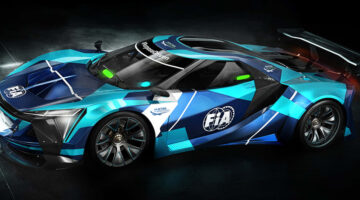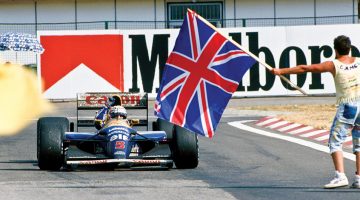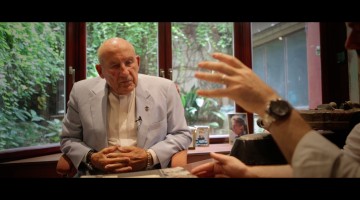With a name to get behind and ‘big business’ to be had, an Emirati star in the making suddenly becomes a marketing gold mine. That is of course if the public and/or global motorsport bigwigs bite. Despite a solid base of motor racing heritage stretching back the best part of a century, Europe is still littered with stories of so near yet so far: even Bruno Senna proved that commitment, talent and a marketable name doesn’t a World Champion automatically make.
But then there’s grass roots motorsport, and therein lies a different opportunity. Suddenly one prodigal star potentially becomes several. A speculative motorsport industry establishes a firm footing, and elements of consistency. Consistency itself reduces risks and investment becomes a more lucrative proposition. In comes promotion, finance, a growing infrastructure, a marketable business strategy, and a potential increase in public interest. It’s a model that both the Dubai Autodrome and the Bahrain International Circuit are keen to pursue, both of whom have indeed already begun investing time and effort.
“Yes, we’ve always strived to focus on grassroots motorsports because they are the base of our industry,” our BIC spokesman explains. “Whether it’s karting, supporting a talented driver or hosting championships, we believe that doing so helps nurture and build the industry even further.
“We host the cost-effective BIC 2000cc Challenge, which pits home-built 2.0-litre cars against one another with very tight restrictions on what can be done on the car. Those with more financial flexibility aren’t able to go crazy with their spending, and the playing field remains level. Also, we host Drag Nights and Test and Tune Nights, which is more for drag racers but this is where we usually see home-built project cars. These events attract fans not just from Bahrain but from countries around the GCC, which underlines the sport’s popularity on a regional scale.”
“Actually motorsport in the UAE has some of the most cost effective racing in the world,” Richard explains. “Tyre costs are on a par with European prices, petrol is a quarter of the cost than in Europe, and for track time, average UK entries would cost $10 per minute, whereas here you are looking at less than $8 per minute. But it doesn’t always pull competitors in.
“For a couple of years, the cheap-as-you-get Suzuki Swift Cup series failed to attract more than half a dozen drivers. The NGK Racing Series allows for all types of cars, and tuning shops throughout Dubai approached us, but not one of them submitted an entry. But we are of course keen to support any club and help them develop. Evolve, for instance, have many days on track during the year.”
And for those who may perhaps not have access to a car?
“Everyone can do more to promote racing at grass roots level. We have introduced the SWS Series for aspirant karters who want to get a taste of racing. It’s highly affordable and super competitive, an ideal toe in the water. Fields of 30 something drivers are common in SWS races at the Dubai Kartdrome, and this has led to dozens of drivers moving into the more experienced Rotax Max series. Most recently the Kartdrome has introduced SWS Junior series, which is made for young drivers (14 and younger). The past season enjoyed full grids.”
‘Slowly but surely’ appears then to be the modus operandi: as opposed to ‘build it and they will come’ (which, given its Grand Prix stature, is a principal the Bahrain International Circuit still adheres to), ‘grow it where they stand’ appears the way to go. With patience, Middle East motorsport could potentially find its way again. Ironically, if a grass roots base is the way to go, it would involve starting from the beginning all over again.
Many would argue it’s worth the risk.
– Shots courtesy of Pete West



